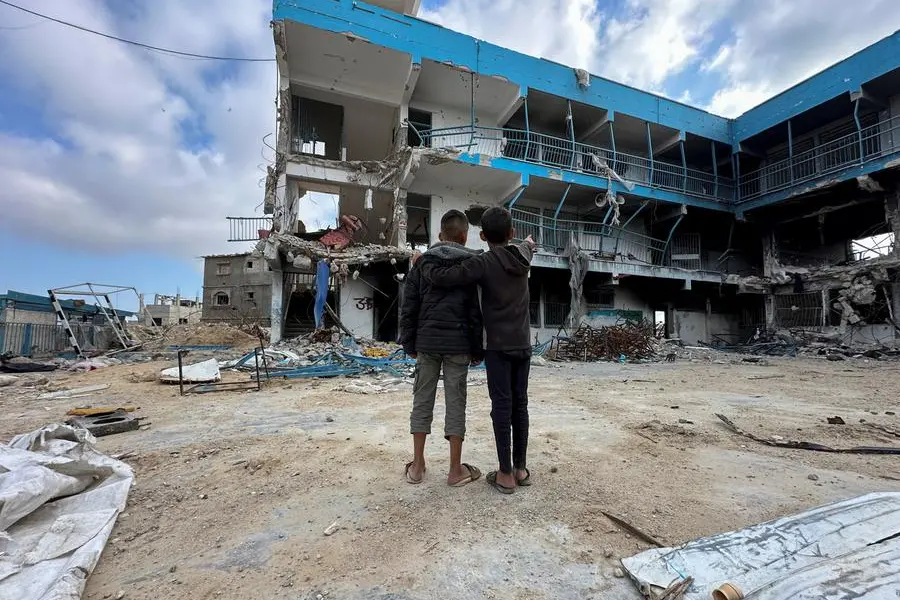PHOTO
Traumatised 10-year-old students stare at their destroyed schools in Gaza, a grim reminder of the education and time with friends in the playground lost since the war erupted over six months ago.
"We would go out during recess. We would go to the classroom and walk around. The principle would come to the classrooms," said fifth grader Abed al-Qara, who was inspecting the damage with his friend Muhammed al-Fajem in Bani Suhaila, located in the east of Khan Younis, in the southern Gaza Strip.
"He would give us the books. We would go there and see who is coming and going; we would stand at the school gate. We were living."
Bullet-riddled buildings. Papers scattered in a gutted classroom. Posters ripped off of walls. Damaged books.
It's all a grim reminder of the education and dreams those who represent the future of Gaza -- a densely packed strip of land with severe shortages of water, food, medicine and healthcare -- have lost since the conflict erupted on Oct. 7.
Hamas militants attacked Israel, killed 1,200 people and took over 200 hostages according to Israeli tallies, in a surprise operation that pointed to major Israeli intelligence failures.
Israel retaliated with an air and ground offensive that has killed over 33,000 Palestinians according to local health authorities and reduced much of Gaza to rubble and wastelands, including schools which have a critical place in a society where children make up about half of Gaza's 2.3 million population.
Young students who were hungry to learn now wonder if they will ever be able to pack their books and go back to school again. Gazans -- young and old -- are desperate for signs that the fighting will end. But there are none.
Mediators have failed to narrow differences enough between both sides to secure a ceasefire as proposals are passed back and forth.
Teacher Muhammad al-Khudari sat on rubble and wrote on a piece of paper, reflecting on the wide-scale ruins of the education system, at all levels, from kindergartens to universities.
"We call on everyone to pay attention to the education process (in Gaza), and for the return of education as it was before the war," he said.
Still, some like fifth grade student Muhammed al-Fajem, have not lost hope.
“I was one of the top. I used to get 98 percent. I used to get 100 percent. I was one of the top," he said.
"We will set up tents and we will study in the tents. No matter the cost, we will study in them. This was our classroom. See the room of the principle. He used to bring us books and sweets. He would give us everything. He would give us toys."
(Writing by Michael Georgy Editing by Alexandra Hudson)





















